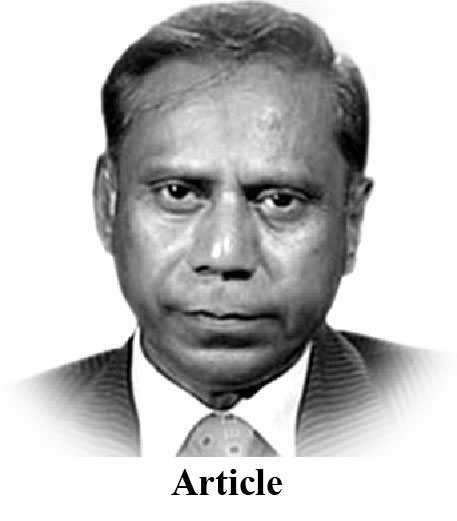Sultan M Hali
THE 74th Session of the United Nations General Assembly (UNGA) is being held from September 17-30, 2019 at UN headquarters in New York. The theme of this year’s debate is “Galvanizing multilateral efforts for poverty eradication, quality education, climate action and inclusion.” Two adversaries, who have come fully prepared to the 74th UNGA to debate and canvass for their respective points of view are Pakistan’s Prime Minister Imran Khan and his Indian counterpart Narendra Modi. The point of contention is Kashmir, the seventy-two years’ old festering sore and core issue between the two protagonists Pakistan and India. In 1947, when the Indian Sub-Continent was partitioned, according to the Independence Act, all princely states were to opt for accession either to India or Pakistan. Before Kashmir could exercise its option, Indian forces occupied it and forced its Hindu Maharaja Hari Singh to sign a letter of accession in favour of India. Volunteers from Pakistan tried to liberate Kashmir from India’s clutches by force but when they secured one-third of the territory, India approached the UN Security Council (UNSC) for invoking a ceasefire, which came into effect but the UNSC also adopted Resolution 47, on 21 April 1948, concerning the resolution of the Kashmir conflict. The Resolution demanded a plebiscite under the aegis of the UNSC for the Kashmiris to decide whether they opted to accede to Pakistan or India.
The UNSC Resolution was binding and both sides agreed to abide by it, but later India reneged. Pakistan and India went to war in 1965 and 1971 but the Kashmiris fate remained unchanged and they continued to suffer the brutality of Indian tyranny. India-occupied Kashmir (IoK) was given a special status in 1954 under Article 370 of the Indian Constitution conferring it with the power to have a separate constitution, a state flag and autonomy over the internal administration of the state. Article 35-A of the Indian Constitution forbade non-Kashmiris from settling in IoK or acquiring property there. On 5 August 2019, the government of India revoked this special status through a Presidential Order and annexed IoK and Ladakh into Union territories of India. Prior to this unilateral action over a region declared disputed by the UNSC, Modi’s government deployed thousands of additional troops and slapped a curfew on the IoK, which has continued now for nearly two months. Resultantly, the people of Kashmir are starving, have lost their means of livelihood, are denied food and medicine and even the chance to practise their religious obligations. Kashmir continues to be in a state of lockdown because the Indians fear that the moment the curfew is lifted, the residents of IoK will take to the streets in protest. Indian government has not allowed international or even its own media to enter the Valley lest the true picture is exposed. Even Indian politicians from the opposition have been denied entry. After great persuasion, Ghulam Nabi Azad, a Muslim and the leader of the opposition was permitted to enter Kashmir and Jammu. His reaction was of shock and horror.
There are reports of militants from the extremist Hindu group Rashtriya Swayamsevak Sangh (RSS) having been deployed into IOK to wreak havoc on the hapless Kashmiris. The RSS hooligans are reportedly brutally murdering young Kashmiris suspected of planning a mass uprising. Political leaders of all ilk are incarcerated. Women are being raped or harassed. Some leaked videos depict Indian Law Enforcing Agencies chopping down trees laden with fruit to deprive the Kashmiris of their livelihood. The aim is to subdue the Kashmiris to a state of subjugation where they will accept Indian supremacy. The rescinding of Article 35A will enable Indian government and its militant arms to drive the original Kashmiris out from the Valley and resettle Hindus and change the demography of IoK.
Pakistan has left no stone unturned in highlighting the sad plight of the Kashmiris. Unfortunately, the world is not ready to chastise Narendra Modi for his gross violation of human rights because they consider India a large market for the world powers apart from China to sell arms or trade goods. They also look upon India as an emerging power. President Trump, who has offered mediation on the Kashmir issue, has been spurned by Modi. Donald Trump joined Modi at a massive rally at the NRG Football Stadium at Houston, where accolades were showered on each other. Trump has eyes on 4 million Indian-origin Americans who may vote for him in the forthcoming Presidential elections while Houston was the appropriate venue for the rally because Texas could emerge as a battleground state in the 2020 elections.
Modi is strutting about like a proud peacock, claiming that the action of his government on 5 August was a major victory for democracy. He is duping the world that all is well in IoK and the people are welcoming his move. No world leader apart from China, Turkey and Malaysia are willing to even discuss Kashmir lest they provoke Modi. Coming back to the theme of the 74th UNGA: Galvanizing multilateral efforts for poverty eradication, quality education, climate action and inclusion; Modi is driving the Kashmiris towards poverty rather than eradicating it. All educational institutions in IoK remain closed, so where is “quality education”? The theme of “inclusion” is a farce since the fate of the Kashmiris was sealed on August 5th, without consulting them; yet no one is willing to bell the cat “Modi”, who is brandishing his sabre and threatening to take back Azad Jammu Kashmir and Gilgit-Baltistan. Yet Allah and the prayers of 22 crore Pakistanis are with their Kashmiri brethren.
—The writer is retired PAF Group Captain and a TV talk show host.










